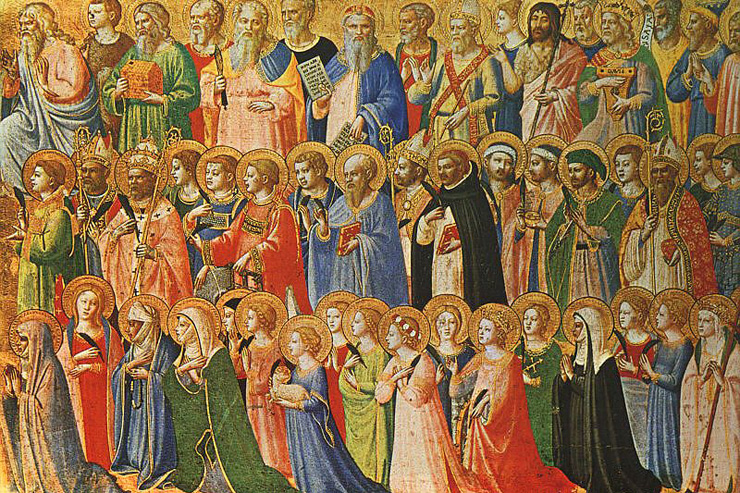I was driving to my early morning adoration hour, preoccupied in my thoughts about a recent discussion I had about the phrase “love the sinner, hate the sin.” As I thought over the debate about the validity and worthiness of the expression, something made me stop and listen to the contemporary Christian song that was coming through my car radio.
While I don’t listen to contemporary Christian music often, I needed to hear what was coming through the speakers today. It was a song by Jason Gray called “Remind Me Who I Am.” As my mind wandered away from “love the sinner, hate the sin,” it rested on the refrain where he prays, “Tell me once again who I am to You.”
That’s it, I realized. We can argue all day long about the worthiness of using the phrase, “love the sinner, hate the sin,” but at the end of the day, I think it’s a valid approach… because it’s God’s approach to me.
If I stop to think of who I am, I come face-to-face with the humbling realization that I’m a child of God. And with this realization, I also come face-to-face with the fact that I’m often not a very good child. But that doesn’t change my identity. Why? Because as John Paul II reminded the youth in Toronto: “We are not the sum of our weaknesses and failures; we are the sum of the Father’s love for us and our real capacity to become the image of his Son” (WYD, Closing Mass, 2002). I can love who I am while at the same time hate when I don’t live up to it.
C. S. Lewis rightly observed, “I remember Christian teachers telling me long ago that I must hate a bad man’s actions but not hate the bad man: or, as they would say, hate the sin but not the sinner. …I used to think this a silly, straw-splitting distinction: how could you hate what a man did and not hate the man? But years later it occurred to me that there was one man to whom I had been doing this all my life—namely myself. However much I might dislike my own cowardice or conceit or greed, I went on loving myself. There had never been the slightest difficulty about it. In fact the very reason why I hated the things was that I loved the man. Just because I loved myself, I was sorry to find that I was the sort of man who did those things.” (Mere Christianity)
Stopping to think more often about who we are in the eyes of God helps us to hate our own sin. My sin is not who I am. I am a child of God. And my failings are not my identity—they are when I fall short of my identity. We need to meditate more often on the enormity of God’s love and the mystery of divine filiation—that He condescended to adopt us, weak and sinful human beings, as his own children.
“See what love the Father has given us, that we should be called children of God; and so we are!” (1 John 3:1)
I assure you, if you spend time in front of the Blessed Sacrament meditating on that mystery, you will come away hating when you failed Him, but loving yourself. Why? Because you begin to hate anything the separates you from God. At the same time, you can love yourself because God doesn’t make junk, nor does He save junk. Love Himself created you in love and for love. We have failed that love, but He doesn’t define us by those failings. He calls us not by our sins, but by our name.
“Fear not, for I have redeemed you; I have called you by name, you are mine.” (Isaiah 43:1)
He doesn’t identify us by our weakness, and neither should we. At the same time, we have to hate our own sin because sin, by its very nature, separates us from Him, the One who created us, loves us, and sanctifies us.
Hating our sin isn’t easy. We choose sin because it appears good. So hating it takes prayer, self-discipline, growing in virtue and the long road of forming our consciences. Even when we intellectually know something is sinful, we can still be tempted to choose it for the pleasure we think it’ll bring us. St. Paul famously lamented, “I do not understand my own actions. For I do not do what I want, but I do the very thing I hate.” (Romans 7:15) Even if we hate our sin, we still struggle- that’s the battle of every Christian’s life.
One of the most prevalent modern heresies is that loving someone means accepting every action and choice that person makes. I read recently, “when a person says they love someone on the condition that they are allowed to disagree with their choices, that’s not unconditional love.”
We will always look like bad Christians if we are held to this standard. I recognize that I have failed and fallen. Not once, but many many times each day. Loving me doesn’t mean accepting these hurtful, dumb, or even dangerous decisions. Should a mother accept her child’s decision to play in the street? Should a wife accept her spouse’s decision to drink to excess? Is it loving to watch a loved one harm themselves?
If you can’t differentiate between me and my choices and love me while disagreeing with my choices, you’d better be prepared to love my gossip, my jealousy, and my laziness. But I’d rather you love me and help me become a better person instead. If what I love separates me from God, please help me to hate it. Remind me who I am.
Unconditional love is not agreeing with every decision I make. Unconditional love is Someone dying for the decisions I made.















